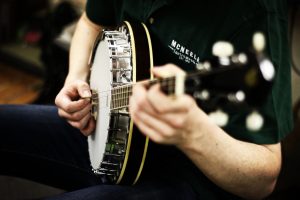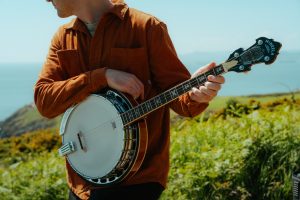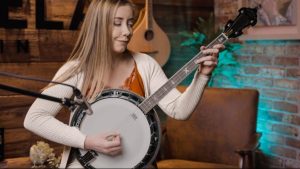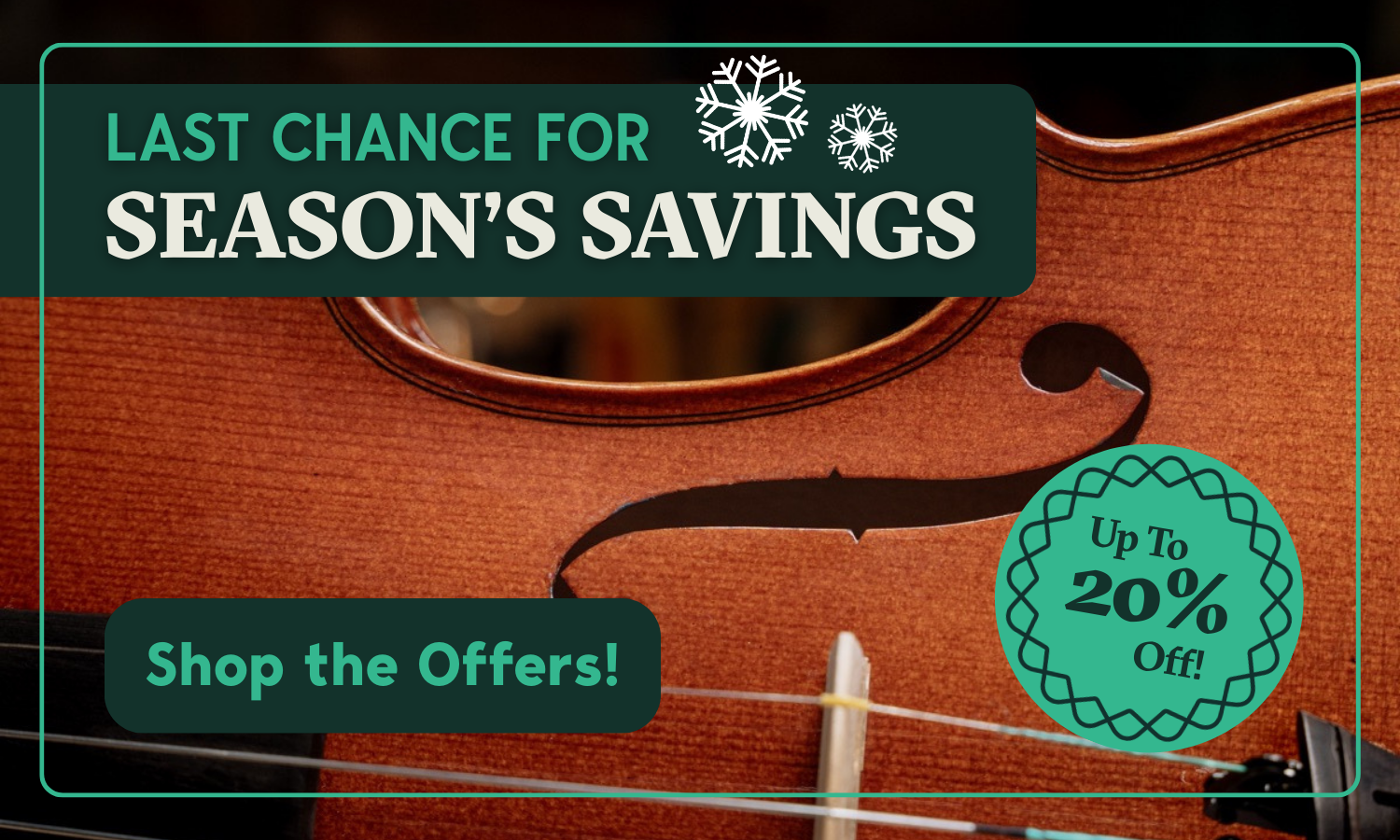![How Much Does a Banjo Cost? [2026] 1 Gemini Generated Image 6z9ni96z9ni96z9n](https://blog.mcneelamusic.com/wp-content/uploads/2025/10/Gemini_Generated_Image_6z9ni96z9ni96z9n-1024x585.png)
Updated for 2026 • Beginner to professional • Expert tips from Paraic McNeela
The Expert’s Note
From Affordable Banjos to Premium Collectibles: A Price Guide
Banjo Prices in Ireland, the UK or the US
I am often asked if a banjo is more expensive in Ireland or in the US. The truth is, the prince range for banjos is broadly similar worldwide. What varies slightly are shipping, VAT and taxes. So wherever you’re based, you can set a sensible budget and shop confidently.
- Ireland and UK: Entry-level models usually start around €250–€400. Intermediate tenor or 5-string banjos range €600–€1,200.
- USA: Beginner banjos often fall between $200–$500, while quality bluegrass 5-strings usually cost $600–$2,000.
- Worldwide: No matter where you live, you can order a banjo securely online. At McNeela, we’ve been safely shipping instruments worldwide since 1979.
So if you’re searching where to buy a banjo in Ireland or online, rest assured you’ll find the same affordable banjo options available everywhere, with McNeela’s expert setup and safe delivery guarantee.
How Much Does a Good Banjo Cost for Each Skill Level?
If you’re wondering “how much is a banjo?” — the answer depends on the style and level. The cost of a banjo really depends on where you are in your musical journey. Whether you’re just starting out or preparing to play on stage, here’s what you can expect:
Beginner Banjos: Typical price: $200–$500 (≈ €250–€450).
Light, easy-playing builds with stable tuning and comfortable action.
Intermediate Banjos: Typical price: $500–$1,000 (≈ €600–€1,000).
Upgraded hardware, tighter build tolerances, stronger projection and a more balanced tone. They are often gig-ready.
Professional Banjos: Typical price: $1,000+ to $3,500 (and more for vintage/collectible).
What you’re paying for: Premium tonewoods, refined fretwork, high-spec components and meticulous setup for stage-ready sound and feel.
Average Banjo Price by Type (2026): A Comparative Snapshot
| Banjo Type | Typical Price Range | Level | Best For |
|---|---|---|---|
| Beginner Banjos | $200 – $500 | Entry-level | First-time players, students |
| Irish Tenor Banjos (4-string, 17 & 19 fret) | $400 – $1,200 | Beginner–Intermediate | Irish traditional music |
| 5-String Banjos | $500 – $2,000 | Intermediate–Professional | Bluegrass, folk, country |
| Vintage & Used Banjos | $700 – $3,500 | Advanced/Collectors | Distinct tone, historical value |
Browse our full selection of banjos for sale online.
Beginner vs. Professional Banjo Costs
So, what actually separates a $300 beginner banjo from a $3,000 professional instrument? Let’s look at the real differences in cost and construction.
- Beginner banjo prices: affordable starter instruments ($200–$500) designed for easy playability. I would recommend these entry-level instruments built for for getting started without a huge investment. See this Selection of Beginner Banjos
- Professional banjo costs: $1,000+ with premium tonewoods and better hardware. At the other end of the scale, professional banjos feature premium tonewoods, upgraded hardware, and meticulous setups that deliver stage-ready sound. See this Selection of Premium Banjos
Most players we meet start with a solid beginner banjo, then upgrade later once their skills and ambitions grow. The key is choosing an instrument that inspires you to keep playing.
Tips to Getting the Best Banjo for Your Budget
New vs. Used — Which Banjo Offers Better Value?
- New banjos offer warranties, reliable quality, and a clean professional setup.
- Used banjos can save money but always check fret condition, tuning stability, and overall wear.
- A well-maintained vintage banjo can be a treasure, with unique tone and character (though prices are often higher).
For beginners, new is usually the safer path. Once you’ve developed your sound, used or vintage can be a rewarding next step.
Buying Online vs. In-Store
- Online (from a specialist): Wider selection, detailed specs, pro setup before shipping, video demos and global delivery. Check return policy and support.
- In-store: You can test the feel and weight immediately, but stock may be limited.
Best of both worlds: Shortlist online, then compare in-store if possible — or rely on a retailer who publishes clear demos and offers hassle-free returns.
How to Spot Overpriced Models?
- Compare price to playing level
✘ An entry-level banjo sold far above its range without any hardware or setup upgrades.
✓ Price makes sense for the materials, craftsmanship, and setup you’re getting.
- Check the build and setup
✘ Sharp fret ends, high action, or tuning that won’t stay stable.
✓ Smooth fretwork, comfortable action, and reliable tuning.
- Look for clear specifications
✘ Vague marketing like “premium wood” with no details on tone ring, rim, or tuners.
✓ Transparent specs and setup notes that tell you exactly what you’re paying for.
- Listen before you buy
✘ No sound samples or demos available.
✓ Honest demos that reflect the music style you want to play.
- Check the after-sales support
✓ A solid return policy and responsive customer support are signs that the maker stands behind the instrument.
What Affects Banjo Prices?
Even at the same “level”, banjos can vary a lot in cost. Here are the main factors that move the price up or down, and what they actually mean for sound and playability.
Materials and Craftsmanship
- Tonewoods and rim construction: Higher-grade maple/mahogany and a well-made rim (and resonator on 5-strings) add clarity, volume and sustain.
- Hardware: Quality tuners, tailpiece, tone ring and head tension hold tuning better and produce a more stable tone.
- Fit and finish: Clean fretwork, level frets, smooth nut/bridge slots and a tidy finish improve comfort and intonation.
- Setup: A careful setup (head tension, bridge placement, action, intonation) can make a bigger difference than an impressive spec sheet. Every banjo we ship is inspected, adjusted and played by musicians in our workshop.
Brand Reputation
- Predictable quality: Established makers generally offer better quality control, reliable warranties and serviceable parts.
- Resale value: Well-known brands retain value better; that matters if you plan to upgrade later.
- Design choices: Some brands optimise for Irish trad response (tenor), others for bluegrass power (5-string); the right design for your music is part of what you pay for.
Handmade vs. Factory-Made
- Factory-made: More consistent, typically better value for beginners and intermediates.
- Handmade / small-workshop: Higher labour time, custom voicing and premium woods — usually higher price, but also unique tone and feel.
- Reality check: A solid factory instrument with an expert setup will often outperform a poorly set-up handmade banjo.
As you can see, several factors affect banjo prices: build quality, tonewoods, hardware (tuners, tailpiece), whether it’s a resonator or open-back, and the level of hand-finishing. But here’s the secret I’ve learned after decades in this business: a careful setup often makes more difference than a long spec sheet.
That’s why every banjo we sell is inspected, adjusted, and played by musicians in our workshop before it ever leaves McNeela.
Total Setup Cost (Beyond the Price of the Banjo)
When budgeting for a banjo, don’t forget the following essentials:
- Banjo strings: $10–$20 per set
- Banjo case/gig bag: $50–$150
- Banjo strap: $20–$60
- 5th-string spikes installation: optional, around $30–$50
These extras can add $100–$200 to your total banjo purchase cost.
Our Recommended Selection of Banjos
The McNeela Favorites
![How Much Does a Banjo Cost? [2026] 5 McNeela-5 String Banjo_The Freedom](https://blog.mcneelamusic.com/wp-content/uploads/2025/10/McNeela-5-String-Banjo_The-Freedom_3x3.jpg)
The Freedom 5
String Banjo
![How Much Does a Banjo Cost? [2026] 6 McNeela String Banjo The Liberty](https://blog.mcneelamusic.com/wp-content/uploads/2025/10/McNeela-String-Banjo_The-Liberty.jpg)
The Liberty
5-String Banjo
![How Much Does a Banjo Cost? [2026] 7 McNeela-5-String Banjo_The Renegade](https://blog.mcneelamusic.com/wp-content/uploads/2025/10/McNeela-5-String-Banjo_The-Renegade.jpg)
The Renegade
5-String Banjo
![How Much Does a Banjo Cost? [2026] 8 McNeela-4-String Banjo_Viking](https://blog.mcneelamusic.com/wp-content/uploads/2025/10/McNeela-4-String-Banjo_Viking.jpg)
The Viking 4 String
Banjo
Watch: Choosing the Right Banjo for Your Budget
One of the best ways to understand the banjo price range is to hear the difference for yourself. In this short video, Jon Reville demos our Celt 4-String Tenor Banjo — one of the best budget banjos. Notice the easy response, clean intonation, and lightweight feel that makes it such a great choice for beginners.
🎥 The Celt 4-String Banjo Review + Hanley’s Tweed | Ft. Jon Reville (2:14)
Celt 4-String Banjo review — beginner-friendly tenor banjo demo by Jon Reville.
Here’s what a beginner-price banjo really sounds like. Notice the easy response and tidy intonation — exactly what keeps new players practicing.
Conclusion: Our First Choice
If you’re searching for the best affordable banjo or wondering which instrument offers the most value for your money, balances price, playability, and build quality, the McNeela Celt 4-String Tenor Banjo (19 Fret) is our clear first choice.
Why We Recommend It:
- Beginner-friendly action, easy on the hands
- Crisp, authentic Irish trad tone
- Beautiful Celtic finish that players love
- Great value — truly one of the best banjos for the money
- Arrives fully set up, ready to play
- Free padded gig bag, no stress
“It’s the model I designed to help beginners fall in love with the banjo, and judging by hundreds of happy players worldwide, it continues to deliver.” — Paraic McNeela
“Absolutely gorgeous. Love the sound. Great all around.” — Myles G
“Lovely resonance compared to my old banjo. Excellent value for money.” — Simon
The expert’s tip
If you’re just getting started and want the best balance of quality, affordability, and playability, I always recommend The Celt Banjo by McNeela. As both a musician and instrument maker, I designed The Celt to help beginners fall in love with the banjo. It’s affordable, yet it offers the resonance, easy action, and build quality you’d expect from a much more expensive model.
Choose the best affordable banjo you can comfortably invest in. Specs are nice, but the setup is what makes you want to pick it up again tomorrow.
Frequently Asked Questions About Banjo Prices
How much should I spend on my first banjo?
Plan on spending $300–$500 for a reliable beginner banjo that will last.
How do I get the most value for my money?
Look for a solid setup, stable tuning and comfortable action. That’s how you find the best banjos for the money — instruments that make you want to keep playing.
Should I buy a new or used banjo as a beginner?
New is usually safer: clean frets, warranty, and a fresh setup. Once you know your tone goals, you can hunt for the right vintage voice.
Are vintage banjos more expensive?
Ready to buy?
Looking to buy your first banjo or upgrade to a professional model?
Further reading & shopping
If you’re just getting started or planning an upgrade, don’t miss these resources:
- See our guide to the best banjos under $500
- Learn the difference between 5-string and 4-string banjos
- The Ultimate In-Depth Banjo Buyer’s Guide for Beginners
- Irish Tenor Banjo Buyer’s Guide
- Ready to shop? Explore our full collection of String Instruments — professionally set up and safely shipped worldwide.
Quick links:

![How Much Does a Banjo Cost? [2026] 3 How to Choose Preview McNeela 316](https://blog.mcneelamusic.com/wp-content/uploads/2025/10/How-to-Choose_Preview-McNeela-316.jpg)
![How Much Does a Banjo Cost? [2026] 4 Ask Our Experts Preview McNeela 316](https://blog.mcneelamusic.com/wp-content/uploads/2025/10/Ask-Our-Experts_Preview-McNeela-316.jpg)
![How Much Does a Banjo Cost? [2026] 9 The McNeela Celt Banjo (19 Fret)](https://blog.mcneelamusic.com/wp-content/uploads/2025/10/McNeela-Celt-Banjo-19-Fretx225.jpg)






Share your thoughts